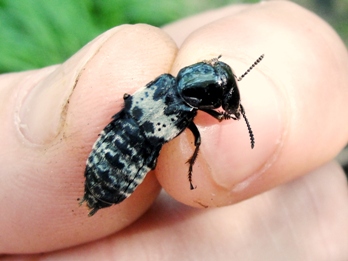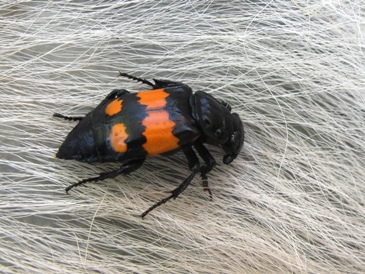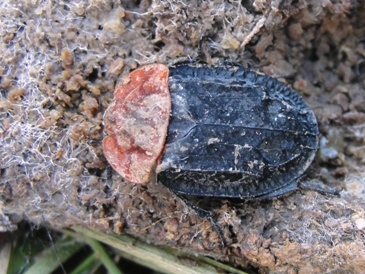There are many species of beetles that hang around carrion, although many species do not eat the rotting flesh but feed on other beetle or fly larvae that do. Many species of rove beetle do just that.The larger species of these attractive animals home in on carrion smells and it was under a dead roe deer that I placed by a infra-red trigger camera that I found many of the species(Creophilus maxillosus), one of our most striking of the large rove beetles. They move very fast and with sort of animated movements, with jerking movements.
These predators were feeding on blow fly maggots.
Another species known as one of the sextant beetles is (Nicrophorus vespilloides). This species along with the other three similar species usually like a small item of carrion to themselves, and offspring. Usually a male finds a female at a carrion site and together they both bury the small carcass of any animal, by digging underneath it until it sinks into the ground, then the female lays her eggs and when they hatch, both parents feed them with regurgitated rotting flesh. They are great parents and herd them up and tend to them like any mammal or bird would. This kind of care is not common within insects but there are many species that do it including earwigs and some spider species.
Another different type is (Oliceoptoma thoracicum) a pretty, flattened beetle.This species does not look after its young and is attracted to animal dung as well as carcasses.



